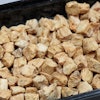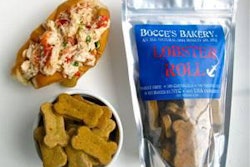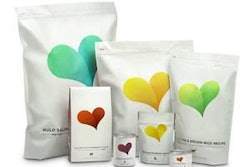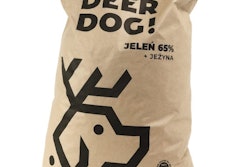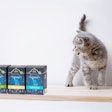
Pet supplements are, by all accounts, a growth market. Packaged Facts data released in January 2021 (Pet Supplements in the U.S., 8th Edition) showed a pandemic-spurred 21% sales growth in the U.S. market to US$800 million in 2020. Further, the market research company predicts that U.S. retail sales of pet supplements will exceed US$1 billion by 2025.
An April 2022 Grand View Research report on pet supplements market size, share and trends analysis put the global pet supplements market at US$1.9 billion in 2021, with a compound annual growth rate of 5.9% from 2022 to 2030. Dogs are expected to remain the largest share of that growth, with 43.2% global revenue share in 2021 and a continued number one spot through at least 2030.
A category evolution
“I think the category is really exciting,” said Daniel Schaefer, co-founder of supplement company Native Pet. “There’s tons of interest, there are tons of new entrants and there’s tons of capital flowing into the category. The category has been one of the hottest growth categories in pet in the last few years — I’m very bullish on pet supplements specifically.”
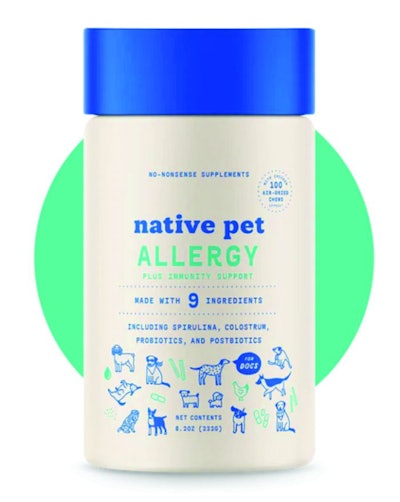
Native Pet’s “no nonsense” approach includes a minimal ingredient deck as well as an innovative format: air-dried chews. | Courtesy Native Pet
That growth, however, includes a new phenomenon beginning to take hold among the treats, supplements and toppers segments in the pet space.
“In a more macro sense, there’s a blurring of the lines between what people consider supplements, toppers and treats today,” said Schaefer. “How we look at it is it’s the ‘around-the-bowl nutrition’ category. We think that category is going to start to evolve into one big category and I think the brands and supplements that do well have an advantage in that broader category because you’ve already earned the trust of the customer.”
The opportunities for success are plenty, as consumers are looking to supplement their pets’ diets with functional options covering a wide range of categories.
“There are plenty of opportunities for brands right now in the pet supplements space,” said Kristen Hatton, brand manager at Open Farm, a pet food company that has recently expanded into the supplements space. “We’re seeing — more than ever — growing demand from consumers and retailers alike for supplement solutions, especially for dogs. Some of the top-requested solutions we see are surrounding gut health, joint problems and skin irritants.”
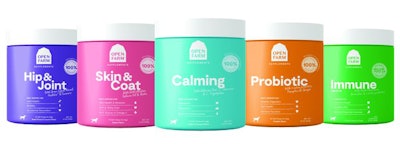
Predictably, the demand has a strong parallel to things happening in the human supplement space.
“Pet parents are on the lookout for more convenient ways to support their pet's health,” said Puppington (which started out in animal skincare and now offers a line of supplements) CEO and Founder Julie Napolitano. “There is also a growing preference for clean-label supplements and functional pet treats. We first saw very similar trends in supplements for people, and with the rise in the anthropomorphism of pets, we're seeing parallel trends take shape in supplements for pets. There's definitely a growing awareness of what's actually inside the products that we are giving our pets.”
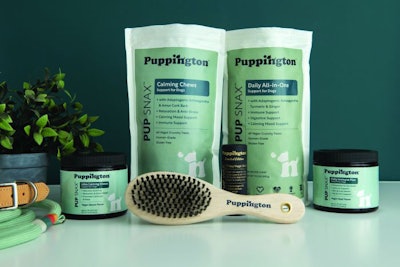
Obviously the supplements space is growing more nuanced, which means being able to cater to specific demographics of pets.
“My products are exclusively focused on supporting the health and organ function of mature and senior dogs,” said David Galvez, Ph.D., founder of Hike Again Remedies. “Within this space, supplements for mobility health (e.g., hips, joints, and cartilage health and function) and immune health (e.g, blends with high content of pre- and probiotics and multisource blends of antioxidants) are at the top of the list. The other big ask is for supplements to be formulated with clean ingredients without gums, fillers, colors or preservatives, and made with ethically sourced, traceable ingredients.”
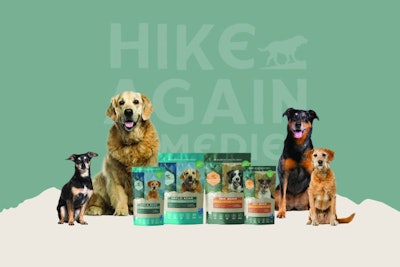
Larger trends in the pet space have also made their way into supplements, and one big ask is presumably the most obvious: The product needs to work.
“Top asks from pet owners are focused on safety, effectiveness and aligning the product claims to the actual experience their pet has,” said Heather Acuff, Ph.D., director of research and development for Nulo, another pet food company that has recently jumped into the supplement fray. “The pet supplement category is evolving almost as fast as it is growing. As the category becomes more saturated, retailers are requiring clear articulation of how our products are differentiated from others in the same space.”
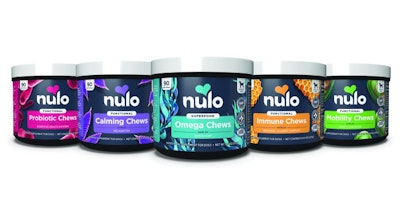
There are only so many ways to package a supplement, and only so many functions they can perform. Finding ways to stand out run the gamut, from injecting a playfulness into the idea of supplementing to zeroing in on key formulations that will suit the intended customer. Still, keeping it simple seems to be a common thread through all supplement makers’ strategies.
“When we set out to make a better supplement, we noticed that those currently available are either fun or functional — not both,” said Bocce’s Bakery, which focuses on pet treats and has also recently decided to include supplements in their offerings. “So, we made sure to bake a better basic supplement that furry friends will love and pet parents can feel good about. We brought it all by blending flavorful, natural ingredients you can recognize (like peanut butter, cheese and honey) with powerful active ingredients (present at therapeutic levels), carefully chosen by an animal nutritionist, with the help of the National Animal Supplements Council (NASC, through which Bocce’s formulas are approved).”
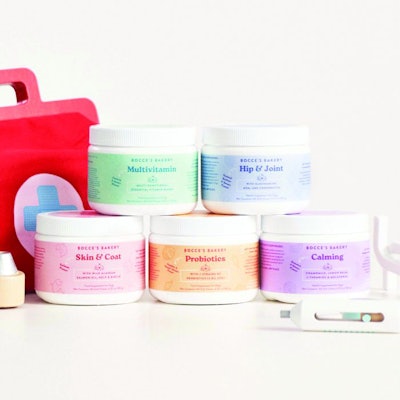
A wholistic approach that openly brings the pet owner into the process can serve the tandem goals of communication and education.
“People take their pet’s health very seriously and are looking for ways to give them the best, healthiest life, as they’re considered members of the family,” said Josh Weiss, founder and CEO of pet supplement company Reggie. “They’re not just looking for a ‘right now’ solution to a health issue, they’re looking for a daily regimen to work in tandem as a preventive solution. People treat their dogs like people, which means wellness goes beyond what goes into our body, but how we treat and are treated by others. We believe in the continued evolution of nutrition and health through science-backed and vet-backed ingredient research. It’s so important to educate owners on their dog’s evolving needs throughout their lives to ensure they live happily and healthily.”
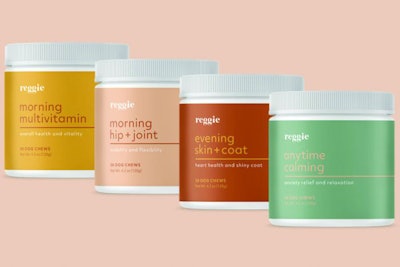
Innovation obviously plays a role in getting recognition.
“We specialize in product innovation,” said Schaefer. “My background prior to founding Native Pet was in product innovation for consumer companies. When we looked at the supplement space what we saw was the majority of the category is sold in this soft chew format. We learned that there are a couple of great manufacturers that make most of these products, so a lot of brands are selling products very similar to what their competitors are selling. When we looked at it, we said, we don’t want to be the 200th brand selling soft chews in the category. And when we talked to customers, we thought there was an opportunity to improve and evolve on that format.” That format became the company’s air-dried chew with 50–70% fewer inactive ingredients and an overall cleaner label.
Trends such as traceability and transparency continue to drive formulations in all segments of pet, including supplements.
“When introducing our new supplements, it was important to keep in line with our brand ethos,” said Hatton. “This meant ensuring our supplements are 100% fully traceable back to the source. We understand the importance of transparency and how it gives the consumer the power to make a more educated decision about what they are feeding their pet. At Open Farm, we take the extra step to ensure our supplements are NASC certified, veterinarian formulated, and adhere to the strictest quality standards in the pet food industry in order to cater ethical and high-quality products to our consumers.”
The future of pet supplements
Those in the pet supplements space expect the evolution to continue, as pet owners get even more specific with their needs and companies respond with ever-nuanced options.
“I believe we will see more and more demand for products with clean formulas without fillers and gums; items that include benefits for pets and pet parents like sustainably sourced ingredients and compostable packaging (rather than "recyclable"); and that offer measurable actions to reduce carbon footprints,” said Galvez.
As for advice to other companies looking to enter the space, there’s plenty to go around.
“As more companies look to enter this category, it’s important to be thorough on gathering information from your suppliers for your active ingredients,” said Acuff. “In the pet food industry, there is an implied marketing mantra that ‘more is better,’ but when it comes to many of these bioactive ingredients, trace amounts can go a long way. Formulators should be careful to avoid ‘megadoses’ of fat-soluble vitamins and unintentional contamination with natural elements brought in by functional ingredients like iodine or fluoride, for example. The complexity and diversity of supplements can make it difficult for consumers to decide which are right for their pet. If the supplement category is going to sustain its growth, the leading formulas are likely to be those that feature complementary active ingredients, at just the right amounts needed to provide their intended function, that also offer something unique for pet owners beyond what a healthy diet alone can provide.”
PODCAST: What purpose do pet supplements serve, and what does the future of this growing segment look like?
For a deep dive into the pet supplements space, listen to episode 11 of the Trending: Pet Food podcast, available on June 22, 2022, as Petfood Industry magazine Editor and podcast Host Lindsay Beaton speaks to Native Pet Co-founder Daniel Schaefer about all things supplements.


